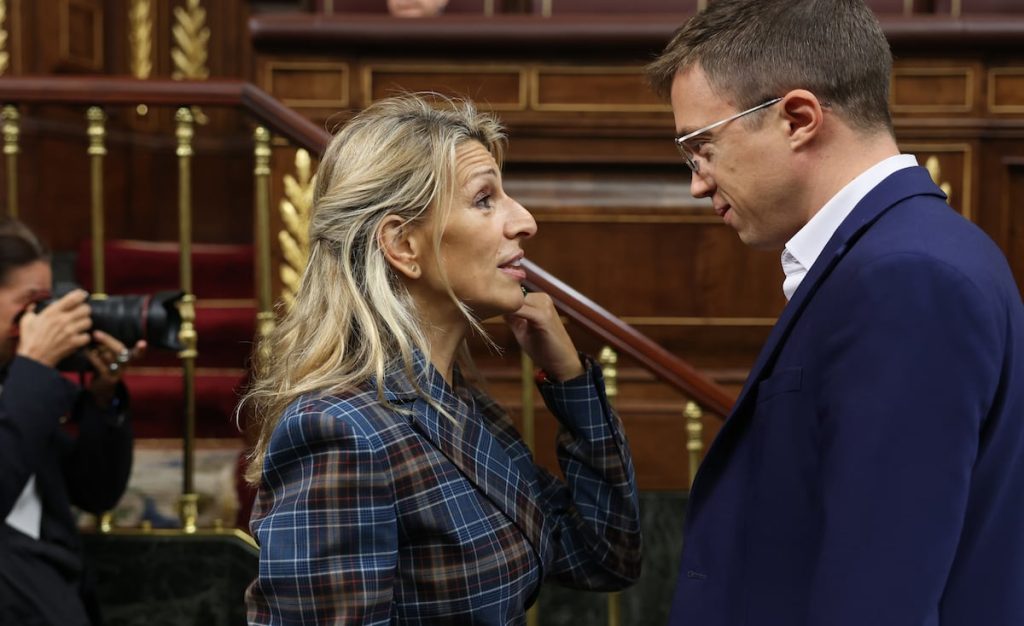Today’s political landscape is dominated by the ongoing case of former spokesperson of Sumar, Errejón, who is facing accusations of domestic violence. Sumar is currently grappling with a difficult situation as they convene their parliamentary group, dealing not only with the allegations against Errejón but also facing internal crises due to poor electoral results, prompting calls for reorganization. The meeting will be led by Vice President and Minister of Labor, Yolanda Díaz.
Another party affected by the Errejón scandal is Más Madrid, the party founded by former Mayor Manuela Carmena along with the disgraced deputy. Co-spokespersons Mónica García, Rita Maestre, and Manuela Bergerot will hold a press conference to address the situation. Rita Maestre, who was once in a relationship with Errejón, publicly shared a letter over the weekend expressing feeling “devastated” for being deceived by a “manipulator” whom she had believed to be a “good partner”.
Meanwhile, the leader of the People’s Party (PP), Alberto Núñez Feijóo, is gathering his regional leaders for a National Executive Committee meeting. Feijóo aims to continue pressuring the current government, which he views as “encircled by corruption and scandals”, positioning his party as a viable alternative. The PP is leveraging the political turmoil surrounding Errejón and the internal struggles of Sumar and Más Madrid to strengthen their position as a prominent political force.
In the midst of these controversies, Errejón’s case has shed light on the issue of gender-based violence within the political sphere. The accusations against him have sparked discussions on addressing and preventing violence against women, particularly within political parties where power dynamics can exacerbate such situations. The scandal has prompted calls for increased accountability and transparency within political institutions to ensure the safety and well-being of all individuals involved.
As political tensions escalate, the need for clear and decisive action on allegations of violence and abuse becomes increasingly apparent. The unfolding events underscore the importance of maintaining ethical standards and upholding the principles of integrity in public office. Leaders and policymakers are under greater scrutiny to address issues related to gender-based violence and promote a culture of respect and equality within the political arena.
In conclusion, the current political landscape reflects a complex interplay of power dynamics, accountability, and ethical considerations. The ongoing case of Errejón and its ripple effects on Sumar and Más Madrid highlight the challenges faced by political parties in managing internal crises and addressing allegations of misconduct. As political leaders navigate these turbulent waters, it is crucial for them to prioritize transparency, accountability, and the well-being of all individuals involved. The outcome of these events will undoubtedly shape the future trajectory of Spanish politics and influence public trust in the political establishment.















